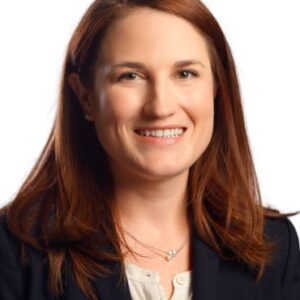It seems like just yesterday, we were reading through the 544 pages of final regulations on the Qualified Opportunity Zones (QOZ) tax incentive. Today, we have found ourselves in uncertain times during a global pandemic, and life as we know it has undeniably changed.
The ongoing COVID-19 situation has resulted in a slew of recent changes to our tax laws and deadlines, as a way to provide relief for those who have been adversely impacted. Among the most recent of those changes was Notice 2020-23, which allows an automatic three-month extension of time to file returns and make payments that are normally due on April 15, 2020.
For those who have decided to invest their eligible capital gains into a Qualified Opportunity Fund (QOF) or start a Qualified Opportunity Zone Business (QOZB), some will find relief within Notice 2020-23. However, many others face uncertainties that are unlikely to be resolved any time soon.
Additional Time for Some to Invest Eligible Capital Gains Into a QOF
In addition to extending the deadlines for filing tax returns and making tax payments normally due on April 15, the IRS also extended the deadline with respect to specified time-sensitive actions to July 15, 2020, if those actions were otherwise required to be performed between April 1, 2020, and before July 14, 2020. Specifically included in this guidance was an extension of time to reinvest eligible capital gains into a QOF. If you were otherwise required to reinvest those gains between April 1, 2020, and July 14, 2020, the deadline to make such investment has automatically changed to July 15, 2020. For example, if you personally owned stock and sold it for a capital gain on October 15, 2019, under normal circumstances you would have had 180 days to reinvest those capital gains into a QOF in order to defer those gains (in other words, by April 12, 2020). Notice 2020-23 effectively changes that due date to July 15, 2020.
It should be noted that many taxpayers already received additional time to make their eligible QOF investments by way of the final regulations that were issued on December 19, 2019. If your eligible capital gains are being passed through to you from a partnership or S corporation on a Schedule K-1, the 180-day reinvestment period begins on the un-extended due date of the pass-through entity’s tax return. Since many pass-through entities are required to use a December 31 year-end, the 180-day period for reinvesting eligible 2019 capital gains into a QOF would begin on March 16, 2020 (noting that March 15, 2020, fell on a Sunday this year). You would then have until September 14, 2020 to reinvest those eligible capital gains into a QOF (noting that September 12, 2020, falls on a Saturday).
Other Considerations for QOZ: COVID-19
With COVID-19 causing disruptions in nearly every facet of everyday life, many QOZ stakeholders and practitioners have wondered whether QOFs and QOZBs specifically will be granted relief from the qualified opportunity zone rules that were finalized this past December. After all, nearly every QOF and QOZB is likely in the startup/construction phase at this time, where things don’t always go as planned during normal circumstances, let alone a global pandemic.
With many startup businesses, cash is essential to get the business going and keep it afloat. Speaking of essential – depending on the state you live in, your business may not be deemed essential in that state, and you might have been forced to temporarily close your business. For instance, New York State recently ordered all non-essential construction activities in the state to stop as a result of COVID-19. The temporary closure of businesses located within a QOZ raises some interesting issues for QOZBs, which we will examine in the following paragraphs:
30-Month Substantial Improvement Period
QOFs and QOZBs must have at least 90 percent and 70 percent, respectively, of their assets qualify as Qualified Opportunity Zone Business Property (QOZBP) in order to avoid penalties under Code Section 1400Z-2(f). One of the requirements for property to qualify as QOZBP is that it must be either original use (i.e., placed in service for depreciation in a qualified opportunity zone for the first time) or substantially improved over a 30-month period. Existing buildings within QOZs likely have to meet the substantial improvement test, where improvements equal to at least 100 percent of the original cost of the property must be made over a 30-month period.
For properties located within New York State, where construction activity has largely been suspended due to the COVID-19 outbreak, meeting this test may prove to be difficult. The final regulations do not include any provisions to extend the 30-month substantial improvement period, and while this may not be an immediate concern for QOFs and QOZBs, it could potentially be an issue down the road.
50 Percent Gross Income Test for QOZBs
A QOZB is required to generate at least 50 percent of its gross income from the active conduct of a trade or business in a QOZ. While the QOZB may be located inside of an opportunity zone, it’s possible that one or more employees who perform services for the QOZB may live in an area that is not designated as a QOZ, and those individuals may now be forced to work from their respective home offices.
Certainly, these employees never planned on having to work exclusively from home. However, some QOZBs are concerned that their employees working from home could potentially preclude the QOZB from being able to prove that at least 50 percent of their gross income was generated within a QOZ. The final regulations do not include any provisions that take into consideration the temporary work assignments for one or more employees, including their new home offices.
31-Month Working Capital Safe Harbor
Many QOZB’s have also wondered whether the 31-month working capital safe harbor period will be extended due to the ongoing COVID-19 situation. While it’s likely that the 31-month period has recently started for many QOZBs, the uncertainty surrounding COVID-19 may have some business owners wondering whether they will ultimately be able to expend their working capital as planned within the 31-month timeframe.
The final regulations indicate that the 31-month period may be extended by up to an additional 24 months if the QOZB is located in an opportunity zone within a Federally declared disaster area. In addition, if your ability to expend the working capital in accordance with your written plan is delayed by waiting for governmental action the application for which is complete, such delay is not taken into account for purposes of meeting the provisions of the working capital safe harbor.
On March 13, 2020, the President declared the COVID-19 situation a national emergency, as opposed to a Federally declared disaster. This declaration is causing some uncertainty as to whether QOZBs will be granted additional time to expend its working capital in accordance with its written plan.
Other Thoughts on Qualified Opportunity Zones
Given the current state of things, it seems unlikely that the IRS or Treasury will provide any immediate guidance that will directly impact the qualified opportunity zones tax incentive or its stakeholders. After all, the tax incentives associated with a qualified opportunity zone investment are only available to those who have capital gains to reinvest into a QOF – arguably a very small subset of the taxpayer population. To prioritize this incentive over aiding newly unemployed individuals and businesses that have had to close their doors would likely be looked upon poorly by the general taxpayer population. It’s possible that some relief may eventually be provided for QOZ stakeholders, but any such guidance is unlikely to be announced any time soon.
Despite the uncertainties noted in this article, some taxpayers and business owners may still find the qualified opportunity zone tax incentives worth pursuing, depending on their own unique situation. With the recent volatility in the stock market, some may find that investing in the right QOF (or starting their own QOF) may yield more favorable and stable long-term returns than investing in publicly traded securities. However, one should use caution and exercise the proper due diligence prior to entering into any QOF investment. Once invested in the QOF, your funds will, in all likelihood, be tied up for a minimum of 10 years, and pulling any money out of the QOF will likely result in a taxable event. You may also be jeopardizing your ability to exit your QOF investment after 10 years without paying any tax on the appreciation of your investment.
If you have any questions on how COVID-19 impacts your specific situation, please reach out to our Real Estate experts today to discuss your specific situation.




